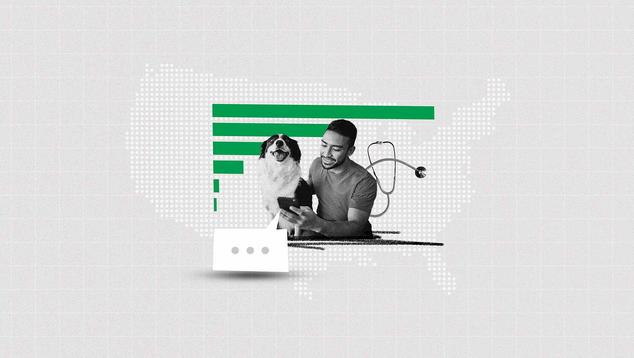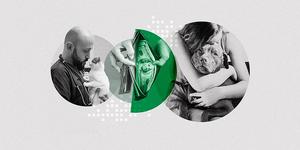WASHINGTON, D.C. — As veterinary costs rise, many U.S. pet owners are seeking more convenient and affordable ways to care for their cats and dogs, which may not always mean the traditional trip to the vet. According to a PetSmart Charities-Gallup study, about four in 10 pet owners say they would be interested in each of three nontraditional veterinary services — community clinics, in-home visits or telemedicine — if they were available.
Despite this interest, relatively few report having used these types of care, with 16% of pet owners having ever visited a community clinic, 8% participating in a telehealth appointment and 8% receiving a home vet visit.
Pet owners across age, race and income groups express at least some level of interest in at least one of these nontraditional care options. However, groups who were least likely to visit the veterinarian in the past year express above-average interest in community clinics, including more than half of Black pet owners (54%) and nearly half of Hispanic (48%) pet owners, 48% of pet owners aged 18 to 29, and 47% of those living in households earning less than $60,000 annually. These age and race differences persist when the pet owners’ income is taken into account. There are not significant differences by subgroup in interest for home visits and telehealth appointments.
Among pet owners who previously declined traditional care because it was not practical for them or their pet, 46% say they were not offered a more convenient option.
These results are from the PetSmart Charities-Gallup State of Pet Care study, conducted Nov. 13, 2024-Jan. 9, 2025, via the probability-based Gallup Panel with 2,498 U.S. adults who own at least one dog or cat.
Pet Owners Also Consult Nonveterinary Sources
When their pets are sick or injured, the large majority of pet owners (81%) still seek guidance from a vet, either in person or remotely. But vets are not the sole source of information for many pet owners — 44% of owners say they consult online resources for their pet’s health, and 22% seek advice from friends or family.
Just over one in six (17%) rely solely on nonveterinary sources for pet health advice. This is especially true of groups who are most likely to say they have declined or forgone veterinary care in the past, including young, low-income or Black pet owners.
Bottom Line
As pet healthcare costs rise and more owners make the choice to forgo needed care, pet owners express interest in nontraditional care options that work for both them and their pets, while meeting their needs and budgets. Use of these types of services remains limited, perhaps because they are not widely available or not discussed as alternatives to traditional veterinary office visits. Expanding community-based, mobile or telehealth solutions could help bridge this care gap and ensure more pets receive the treatment they need.
To stay up to date with the latest Gallup News insights and updates, follow us on X @Gallup.
Learn more about how the PetSmart Charities-Gallup State of Pet Care Study works.



